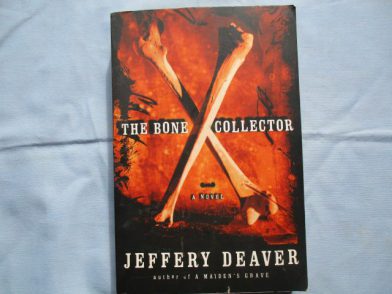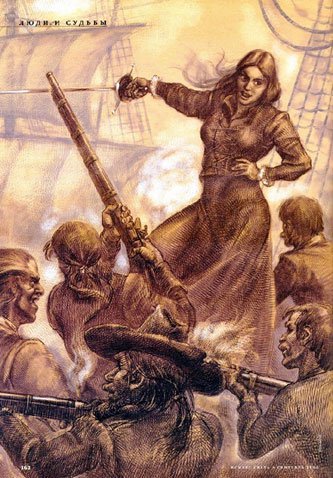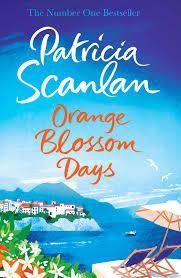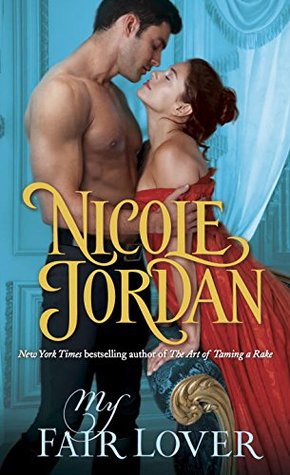Six Degrees of Separation is a monthly meme hosted by Books Are My Favourite and Best. The idea is to start with the book that Kate gives us and then create a chain of six books, each suggested by the one before…

This month’s starting book is Room by Emma Donoghue. I haven’t read it but the blurb tells me…
Jack lives with his Ma in Room. Room has a single locked door and a skylight, and it measures ten feet by ten feet. Jack loves watching TV but he knows that nothing he sees on the screen is truly real – only him, Ma and the things in Room. Until the day Ma admits there is a world outside.
This one has never appealed to me, despite the zillions of glowing reviews. The idea of spending a book inside the head of a five year old is my idea of hell, I fear. But the being held captive by a maniac theme reminds me of…

Koethi Zan’s The Never List, a dark and disturbing psychological thriller. When Sarah and her best friend Jennifer were growing up, they made a list of all the things they should never do if they wanted to stay safe in a world that they had already discovered could turn dangerous in an instant. But one night they forgot the most basic never of all – never get in the car…
“There were four of us down there for the first thirty-two months and eleven days of our captivity. And then, very suddenly and without warning, there were three. Even though the fourth person hadn’t made any noise at all in several months, the room got very quiet when she was gone.”
This was a début that immediately put the author on my must-read list. Which happened again when I read another début…

The Other Typist by Suzanne Rendell. It’s Prohibition Era in America and the police in Brooklyn have been tasked with closing down the speakeasies that have sprung up around the district. To help with the extra workload a new typist is hired, the charming and beautiful Odalie. At first, Rose, the narrator, is a little jealous of the attention Odalie receives from all quarters, but when Odalie decides to befriend her, Rose quickly falls under her spell. Even as she realises that Odalie might have some dark secrets, Rose can’t resist the new and exciting lifestyle to which Odalie has introduced her. But Rose herself may have secrets too – or else why would she be narrating the story from an institution…?
 Keira Knightley has bought the films rights to The Other Typist apparently – I think she’d make a great Odalie…or maybe Rose!
Keira Knightley has bought the films rights to The Other Typist apparently – I think she’d make a great Odalie…or maybe Rose!
Rendell brings the Prohibiton era to life and admits in her prologue that she took inspiration from her favourite book – a favourite of mine too…

The Great Gatsby by F Scott Fitzgerald. Set in the summer of 1922, the book portrays the brittleness of a society still quivering from the aftershocks of WW1 and looking fearfully towards an uncertain future. The hedonism and dazzling decadence of the “Roaring Twenties” is exposed as a thin veneer over a society riven by class division, old wealth and new, and showing the first signs of a breakdown in the old social order. And then, of course, there’s the stunning, evocative writing…
But I didn’t call to him for he gave a sudden intimation that he was content to be alone – he stretched out his arms toward the dark water in a curious way, and far as I was from him I could have sworn he was trembling. Involuntarily I glanced seaward – and distinguished nothing except a single green light, minute and far away, that might have been the end of a dock. When I looked once more for Gatsby he had vanished, and I was alone again in the unquiet darkness.

I thought Mia Farrow made the perfect Daisy, a picture of vulnerability but with an unbreakable core. She played a similar character, Jackie, in another film adaptation, though of a very different kind of book…

Agatha Christie’s Death on the Nile. I haven’t reviewed this one on the blog which tells me it’s well overdue for a re-read, since it’s one of Christie’s finest. The rich and beautiful Linnet Ridgeway is on honeymoon with her new husband Simon, cruising the Nile. But their idyll is about to be destroyed when Simon’s jealous ex-lover Jackie shows up. Jackie is the obvious suspect when Linnet is murdered, but she couldn’t have done it. It’s up to fellow holidaymaker Hercule Poirot to find out who did…
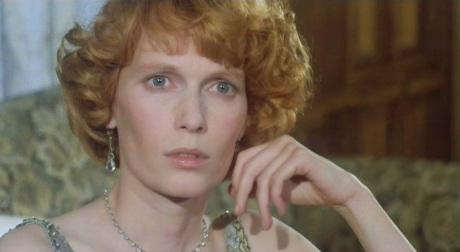
One of the major themes of Death on the Nile is betrayal, which made me think of…

Exposure by Helen Dunmore. When fading Communist spy Giles Holloway falls drunkenly down his stairs and breaks his leg, he must somehow get the Top Secret file he has “borrowed” back to the Admiralty before anyone notices it’s missing. So he turns to his old friend and colleague Simon Callington for help. The brilliance of this story about spies and traitors rests largely on its excellent charcaterisations and authentic setting. But what really makes this book stand out from the crowd is the inclusion of Simon’s wife and family. It’s also a highly intelligent twist on The Railway Children, where we see the story from the adults’ side.
While Giles is the name of a person in Exposure, it’s part of the name of a place in another great novel – Kingston St Giles, the setting for…

Sebastian Faulks’ Jeeves and the Wedding Bells. Modern follow-on novels notoriously usually make me spit and curse. But Faulks has got the overall tone completely right and the dialogue, especially between Bertie and Jeeves, is wonderful! Scarcely a false note, throughout. The plot is suitably convoluted, we meet some old friends and the special sunshine of Wodehouse’s world is back to warm us all again.
‘And what was his attitude towards Georgiana?’
Jeeves considered. One could almost hear the cogwheels of that great brain whirring as he selected the mot juste. It was a pity that, when it came, it was one with which I was unfamiliar.
‘I should say his attitude was complaisant, sir.’
‘Complacent, do you mean?’
‘I fancy either adjective might apply, sir.’
‘Hmm.’ While unsure of the difference, I was fairly certain neither was quite up to snuff.
 My fave Jeeves and Wooster
My fave Jeeves and Wooster
* * * * *
So Donoghue to Faulks, via captivity, débuts, the Prohibition era, Mia Farrow, betrayal and Giles! Hope you enjoyed the journey.